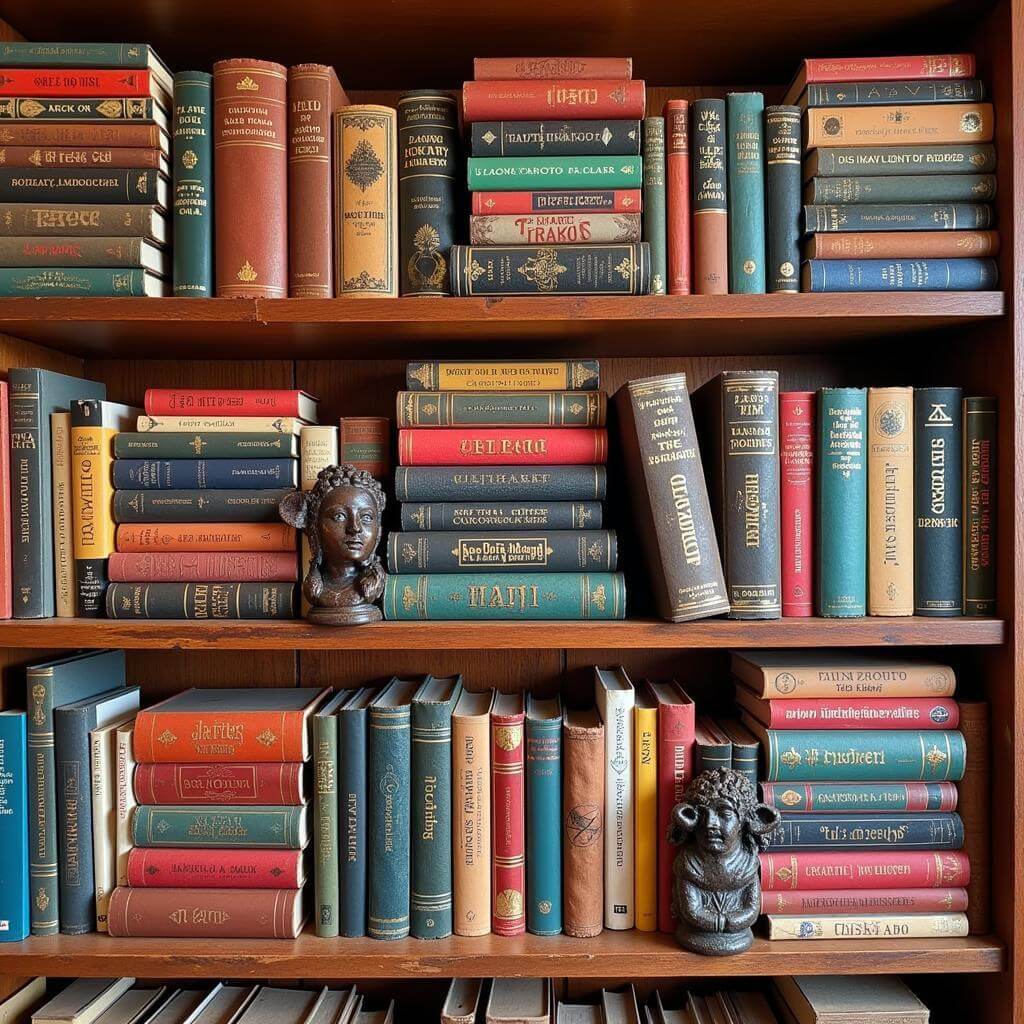Literature plays a crucial role in preserving cultural heritage and traditions. This topic has appeared frequently in IELTS Writing Task 2 exams and is likely to continue being a popular subject for future tests. Based on past exam trends, here are some relevant question types you might encounter:
- To what extent does literature contribute to cultural preservation?
- Should governments invest in promoting national literature to preserve culture?
- How can literature help maintain cultural identity in a globalized world?
Let’s focus on the first question, as it has the highest probability of appearing in future IELTS exams.
Analyzing the Question
To what extent does literature contribute to cultural preservation? Give reasons for your answer and include any relevant examples from your own knowledge or experience.
This question requires you to discuss the role of literature in preserving culture. You should:
- Explain how literature contributes to cultural preservation
- Evaluate the extent of its contribution
- Provide reasons and examples to support your arguments
Sample Essays
Band 8-9 Essay
Literature plays a pivotal role in preserving and transmitting cultural heritage across generations. Its contribution to cultural preservation is substantial and multifaceted, encompassing various aspects of society’s collective memory and identity.
Firstly, literature serves as a repository of cultural knowledge and traditions. Through stories, poems, and novels, authors capture the essence of their culture’s customs, beliefs, and values, ensuring their survival even as societies evolve. For instance, the works of Chinua Achebe vividly depict traditional Igbo culture in Nigeria, providing invaluable insights into pre-colonial African life for future generations.
Moreover, literature acts as a vehicle for language preservation, which is intrinsically linked to cultural identity. By documenting and celebrating linguistic nuances, idioms, and dialects, literary works help maintain the vitality of languages that might otherwise fade into obscurity. The revival of the Hebrew language through modern Israeli literature is a testament to this power.
Literature also fosters cultural understanding and empathy. By immersing readers in different cultural contexts, it promotes cross-cultural appreciation and helps preserve diverse perspectives in an increasingly globalized world. For example, Khaled Hosseini’s “The Kite Runner” has given millions of readers worldwide a nuanced understanding of Afghan culture and history.
However, it is important to acknowledge that literature alone cannot fully preserve culture. Other factors such as oral traditions, visual arts, and lived experiences also play crucial roles in cultural preservation. Additionally, the interpretation of literary works can change over time, potentially altering the cultural messages they convey.
In conclusion, while literature is not the sole means of cultural preservation, its contribution is undeniably significant. By documenting traditions, preserving languages, and fostering cultural understanding, literature serves as a powerful tool for maintaining cultural identity in the face of societal changes and globalization.
 Literature's role in cultural preservation – Book collection
Literature's role in cultural preservation – Book collection
Band 6-7 Essay
Literature plays an important role in preserving culture. It helps to keep traditions and customs alive by writing them down for future generations to read and learn from.
One way literature contributes to cultural preservation is by recording stories and legends. Many cultures have traditional tales that are passed down orally, but when these are written as books, they can be preserved more accurately. For example, the collection of “One Thousand and One Nights” has helped to preserve many Middle Eastern folktales.
Another way literature helps is by describing cultural practices and ways of life. When authors write about their own culture, they often include details about food, clothing, and customs that might otherwise be forgotten over time. This is especially important for minority cultures or those facing rapid change. For instance, Amy Tan’s novels give readers insight into Chinese-American culture and traditions.
Literature also helps preserve languages. When books are written in a particular language, especially minority languages, it helps keep that language alive and encourages people to continue using it. This is important because language is a key part of cultural identity.
However, literature is not the only way to preserve culture. Other forms of art, like music and dance, also play important roles. Additionally, not all aspects of culture can be fully captured in writing.
In conclusion, literature makes a significant contribution to cultural preservation by recording stories, describing cultural practices, and helping to preserve languages. While it may not be the only method, it is certainly a very important one for keeping cultures alive for future generations.
 Author writing a cultural story
Author writing a cultural story
Band 5-6 Essay
Literature is very important for keeping culture alive. It helps people remember old stories and traditions from their country or community.
When writers make books about their culture, they write about many things. They talk about how people live, what they eat, and what they believe. This helps young people learn about their culture. For example, books about Chinese New Year can teach children about this holiday.
Also, literature keeps languages alive. When people write books in their language, it helps that language stay strong. This is good because language is part of culture. If a language dies, part of the culture dies too.
But literature is not the only way to keep culture. Music, dance, and art are also important. Some things about culture are hard to write in books.
In conclusion, literature helps keep culture alive in many ways. It is very important, but not the only way to save culture. We should use literature and other ways to remember our traditions.
Explanation of Band Scores
-
Band 8-9 Essay:
- Fully addresses all parts of the task with well-developed ideas
- Uses a wide range of vocabulary and complex sentence structures accurately
- Organizes information coherently with clear progression throughout
- Provides specific examples to support arguments
- Demonstrates a sophisticated understanding of the topic
-
Band 6-7 Essay:
- Addresses all parts of the task, though some aspects are more fully covered than others
- Uses a sufficient range of vocabulary with some errors that do not impede communication
- Has a clear overall progression but may lack cohesion in places
- Provides some examples, though they may be less specific or developed
- Shows a good understanding of the topic
-
Band 5-6 Essay:
- Attempts to address the task but may not cover all aspects equally
- Uses limited vocabulary with noticeable errors
- Has some organization but lacks overall coherence
- Provides few or underdeveloped examples
- Demonstrates a basic understanding of the topic
 Students discussing literature in a classroom
Students discussing literature in a classroom
Key Vocabulary to Remember
- Cultural preservation (noun) – /ˈkʌltʃərəl prɪzəˈveɪʃən/ – The protection and conservation of cultural heritage
- Repository (noun) – /rɪˈpɒzɪtəri/ – A place where things are stored and can be found
- Multifaceted (adjective) – /mʌltɪˈfæsɪtɪd/ – Having many different aspects or features
- Nuance (noun) – /ˈnjuːɑːns/ – A subtle difference in meaning, expression, or sound
- Dialect (noun) – /ˈdaɪəlekt/ – A particular form of a language specific to a region or social group
- Empathy (noun) – /ˈempəθi/ – The ability to understand and share the feelings of another
- Intrinsically (adverb) – /ɪnˈtrɪnsɪkli/ – In an essential or natural way
- Vitality (noun) – /vaɪˈtæləti/ – The state of being strong and active; energy
- Immerse (verb) – /ɪˈmɜːs/ – To involve oneself deeply in a particular activity or interest
- Nuanced (adjective) – /ˈnjuːɑːnst/ – Characterized by subtle shades of meaning or expression
In conclusion, the role of literature in cultural preservation is a significant topic in IELTS Writing Task 2. To prepare for potential questions on this subject, practice writing essays that discuss how literature contributes to preserving traditions, languages, and cultural understanding. Consider exploring related topics such as The role of education in cultural preservation and The influence of technology on language preservation. Remember to support your arguments with specific examples and maintain a balanced perspective. Feel free to share your practice essays in the comments section for feedback and discussion!


